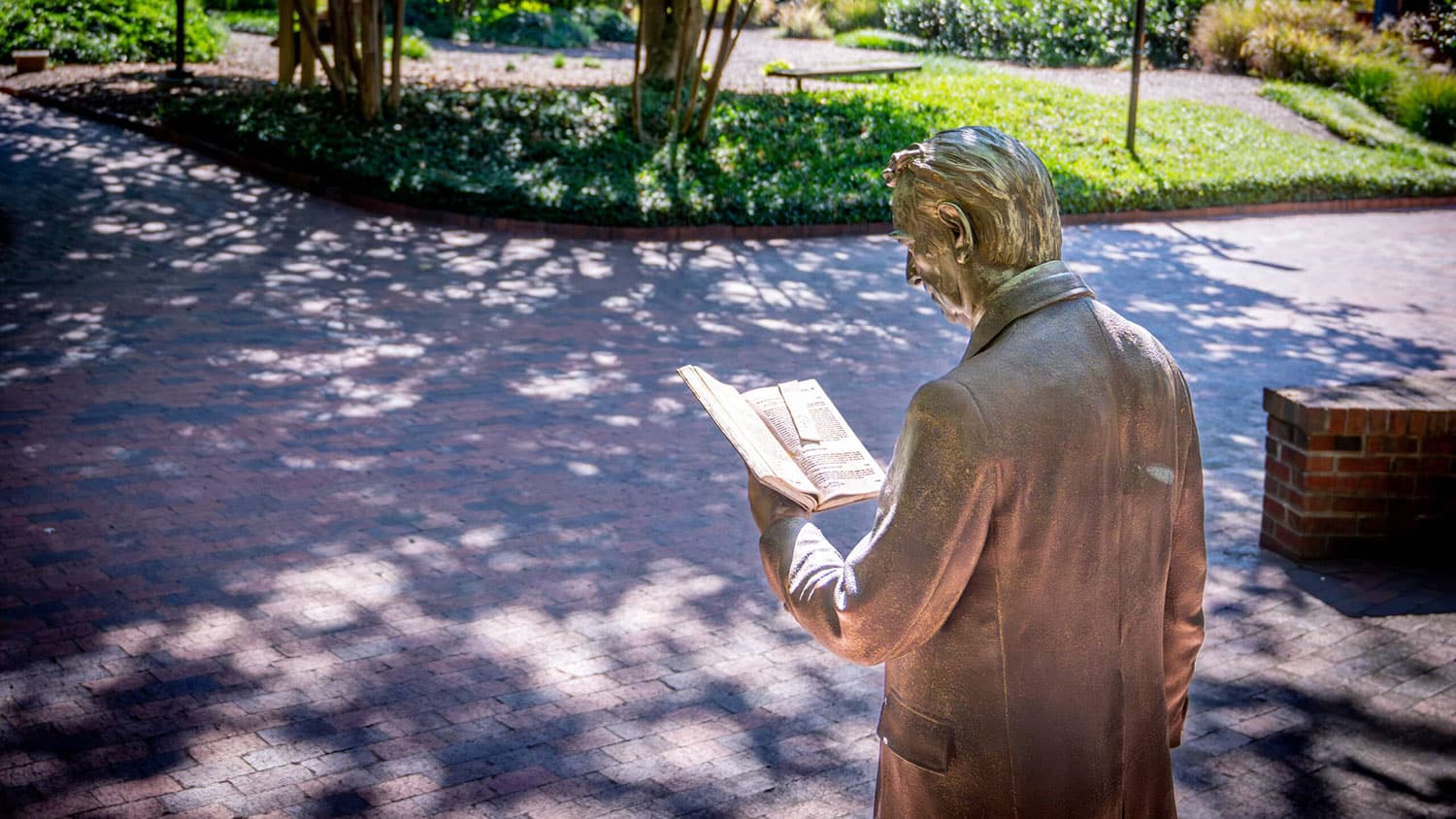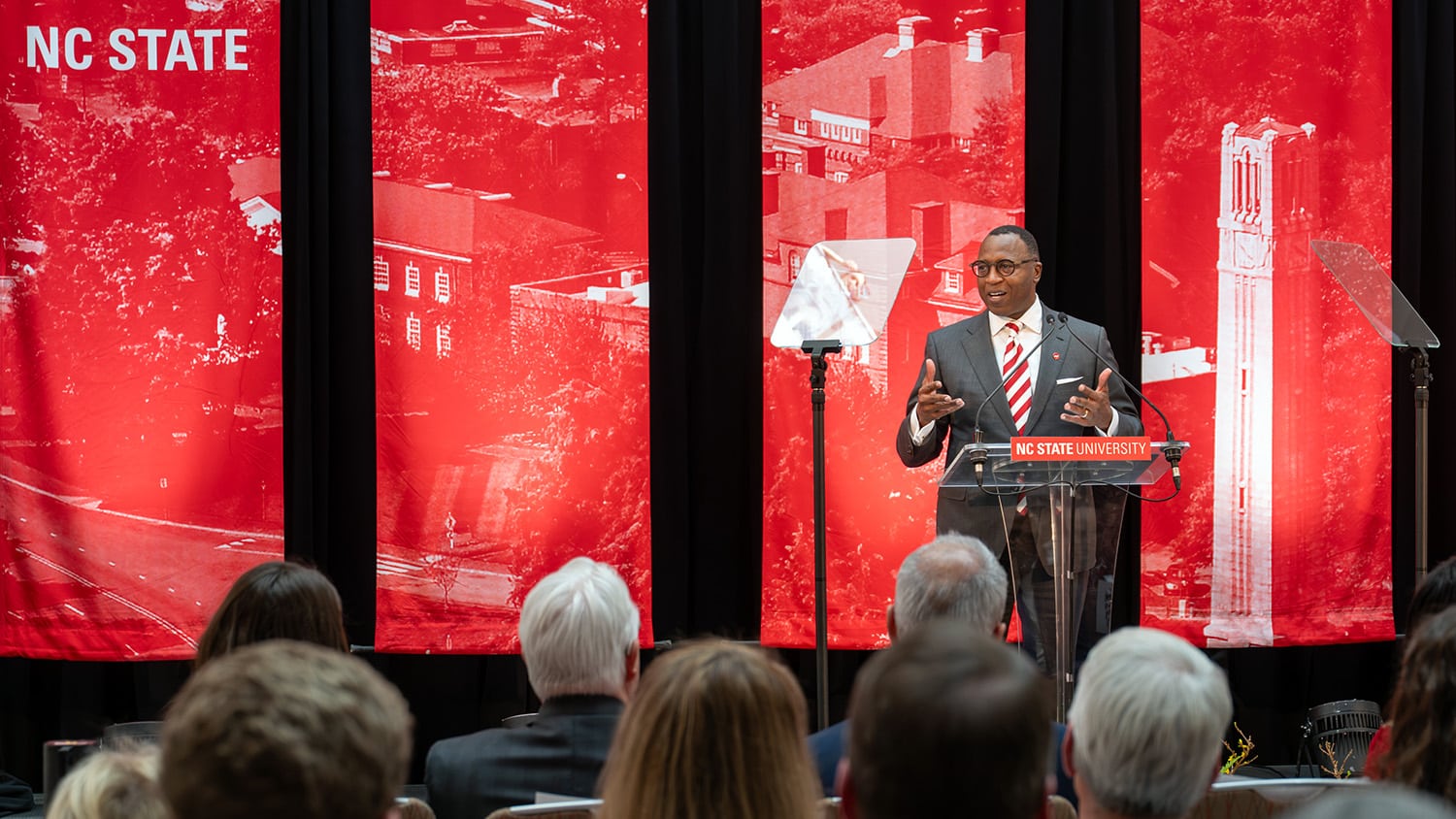Master of Music
Like a confluence of planets, three of North Carolina’s cultural institutions are lining up behind the music of one man: composer Dr. J. Mark Scearce, head of NC State’s music department. For the Triangle’s music lovers, it’s as though Scearce (pronounced “scarce”) has been chosen to provide the soundtrack for the season.
The Carolina Ballet with the Ciompi Quartet revives his Kreutzer Sonata with five performances, Feb. 26 through March 1, in the Raleigh Memorial Auditorium. Then the North Carolina Symphony presents the world premiere of Scearce’s Antaeus: Concerto for Double Bass and Orchestra, with performances April 2 at Memorial Hall in Chapel Hill and April 3-4 at the Meymandi Concert Hall in Raleigh. Then, on April 11, the North Carolina Master Chorale performs his cantata, Anima Mundi, at Hayes Barton Baptist Church in Raleigh.
Scearce, known for his complex, spiritually inspired work – and his enviable talent for avoiding writer’s block – is one of the state’s most prolific composers, and one of its busiest. In addition to accepting commissions for new works, he teaches courses in music theory and composition, and administers a department with 2,000 students and 18 ensembles.
A Labor of Love
It’s a labor of love – and inspiration.

“Music is life,” he says. “The word inspiration means ‘taking in air.’ Inspiration is the breath of life. Music, you can say, is the breath of life.”
Scearce has 50 active titles in his catalogue, including musical settings of more than 150 texts. His works for orchestra, band, chorus, opera, chamber and ballet have been performed throughout North America, Europe, Asia and the Pacific and have garnered awards in five international music competitions. He has earned five advanced degrees in music, philosophy and religion, including a doctorate in composition from Indiana University.
His decision to build an academic career at NC State, a university strong in science and technology, makes sense for Scearce, who sees a deep connection between creative energy and scientific advancement. Since the university doesn’t offer a major in music, the students who crowd into his music courses are as likely to be future mathematicians, engineers, architects, veterinarians, economists, linguists, and social workers as they are to be musicians or composers.
It’s a challenge, and a blessing, for Scearce.
“Our students are some of the best and the brightest from across campus,” he says. “Part of what I’m teaching them is to be creative in their everyday lives. They don’t have to separate the creative from the scientific. In fact, you can teach a scientist to be a better scientist by teaching the creative arts.”
Scearce tells students they may not understand every concept of music theory, but after taking his courses and tapping into their creativity, they may discover a cure for cancer.
Using Music to Communicate
Scearce teaches that music is a tool that can be used to communicate ideas and explore emotions. In a recent class, Scearce played two of his works for the students and asked them to describe what the music said to them. One piece, titled, “This Thread,” is a soaring, at times mournful memorial to the victims of September 11. The students heard sadness, and anger, they said. “It’s as if someone has died,” a student added.
Scearce says it’s important for listeners to be able to connect with the message of a musical work, to hear the intention and inspiration behind the notes.
“If I’ve done my job right, the music will say what the inspiration was,” he says.
He also helps students appreciate the flexible, nonlinear nature of music, a liberating concept for students who are used to a more traditional way of thinking.
“In a composition, I don’t have to start at the beginning and work to the end,” he says. “I have the capacity to start in the middle and work in both directions – to the beginning and to the end – at the same time.”
A piece like “This Thread” does just that, weaving the shock of violence, the grief of loss, and the resilience of the human spirit into a richly complex tapestry. There is pain, certainly, but also hope and renewal, fused into a multicolored thread.
Not surprisingly, considering his academic background, Scearce is an intellectual, finding influences and inspiration in ancient philosophy, mythology, religion and science. He even composed a piece for cello, titled Gaea’s Lament, on the dangers of global climate change. His travels and studies have led him to embrace the concept of the oneness of all living things – a theme that can be traced through many of his works and much of his teaching.
“There is one breath pervading the whole cosmos like soul, uniting us. Sextus Empiricus wrote that 18 centuries ago. To come upon history that is alive like that is very exciting,” he says. “We have to learn this lesson over and over again.”
- Categories:


